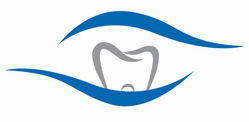
Retinal Vein Occlusion (Eye Stroke)
What Is Retinal Vein Occlusion?
Retinal vein occlusion (rvo) is a blockage in a blood vessel of your eye that can result in vision loss. The retinal veins carry away blood from the cells of the retina. When one of these veins becomes blocked, the blood cannot drain properly which may cause bleeding within the retina, swelling in the center of the vision and sometimes poor blood flow to the eye with possible new blood vessel growth. There are two distinct types of Retinal Vein Occlusion:
Central Retinal Vein Occlusion (CRVO) - a blockage in the retina's main vein.
Branch Retinal Vein Occlusion (BRVO) - a blockage in a smaller retinal vein.
A third type is known as HemiRetinal Vein Occlusion (HRVO) which is typically classified as a subtype of CRVO.
What Causes Retinal Vein Occlusion?
A blockage forms in the vein, usually due to a blood clot, and obstructs the blood flow. The exact cause is unknown, but several conditions make the condition more likely. These include:
- High blood pressure
- High cholesterol
- Glaucoma
- Diabetes
- Smoking
- Certain rare blood disorders
CRVO
When the central retinal vein is blocked, the circulation through the retina is greatly reduced. There is often some degree of fluid back-up and swelling of the center of the retina which is called macular oedema. When this happens, the retina doesn’t function well, and the vision becomes blurred.
BRVO
With BRVO, the circulation of blood through the affected vein is either halted or reduced, often resulting in an accumulation of blood and fluid (macular edema) within the retinal tissue. The reduction in blood flow (ischemia) and macular edema both contribute to decreased visual acuity.
Retinal Vein Occlusion symptoms include:
- Peripheral vision loss
- Blurred or distorted central vision
- Floaters
Prevention And Treatment
It is essential to identify and treat any risk factors to minimise the risk to the other eye and prevent a further vein occlusion in the affected eye although, in a small number of cases, no risk factors can be found, with the cause being unknown. It may also help to reduce the risk of other blood vessel blockages, such as in a stroke (affecting the brain) or a heart attack or, in those with rare blood disorders, a blocked vein in the leg (deep vein thrombosis) or lung (pulmonary embolism).
Persistent bruising and swelling at the centre of the retina (the macula) is the main cause of permanent loss of central vision. The swelling is caused by damaged blood vessels which leak fluid. Different medicines such as anti- vascular endothelial growth factor (anti-VEGF) medicines or steroids may be helpful in reducing this leakage. Laser treatment is sometimes helpful in restoring some central vision in branch Retinal Vein Occlusions.
Have questions or concerns about your eye health? Feel free to get in touch with our dedicated team of experts. We‘re here to help you see the world more clearly”. Contact Us on +91 872 598 7940.
Read more about Retinal Vein Occlusion



